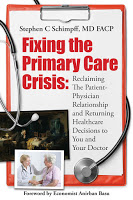What is health insurance?
Insurance is defined as “being protected from financial loss.” Therefore, health insurance is a policy that covers medical expenses for the insured. The insured individual is, in turn, expected to make payments through methods such as paying by monthly installments or in cash payments made to an insurer or healthcare provider or through deductions.
Health insurance is designed to protect an individual from the high cost of a medical emergency, or in other words, insurance for hospital stays and long-term healthcare procedures. Health insurance can be provided by an employer, a government program (such as Medicare and Medicaid), or purchased directly by the individual. In each case, premiums are paid by the individual or through a tax-deductible payroll mechanism. In a typical health insurance plan, the insured makes monthly payments to the insurer based on a premium that is adjusted for several factors, including age, gender, and health status. This payment may take several forms such as: coinsurance, co-payment, and deductible. The insured is then responsible for a portion of the cost of receiving care.
Characteristics of health insurance
Typically, medical insurance plans will have the following characteristics;
- The 4 “metal” categories – bronze, silver, gold, and platinum – are used in the Affordable Care Act and are based on cost-sharing provisions. The categories correspond to the actuarial value of a set of benefits. In short, bronze policies have the lowest monthly premiums, but patients pay 40% of all medical expenses incurred. Platinum plans usually comprise the highest monthly premiums but also provide more comprehensive coverage. Note that depending on your specific situation, you may find that you are eligible for more than one category/group, so it is important to shop around if switching categories is an option for you.
- The total costs of the policyholder’s health care – The insurance plan will typically be associated with payment, referred to as a premium, paid every month regardless of whether the individual incurred medical costs or not. Additionally, the policyholder will have to incur out-of-pocket costs as deductibles when they receive medical care. Different insurance will have varying stipulations regarding these divisions.
- The type of the plan and network (HMO, POS, PPO, or EPO) – Some plans may be associated with one company, others with many companies and doctors. In addition to this, there may be restrictions on the types of doctors and hospitals that are covered.
This article will offer an overview of some of the most common health insurance plans, their cost-sharing provisions, and some common questions that arise regarding their applicability.
For all insured persons, healthcare is provided at no cost to the individual. The only exception is in regards to patients who are covered by government-funded programs such as Medicare and Medicaid, who must pay a deductible and coinsurance on all treatment (and sometimes specific items such as prescription drugs) before the insurance pays for them.
In the United States, health care is not a primary concern for most Americans as they have universal public programs like Medicare or Medicaid that cover their costs should they become sick or disabled and unable to work. However, for some people, that’s not enough, and they opt into health insurance policies on their own with private insurers. If you are one of the people interested in getting health insurance, this article will serve as the perfect guide for you in the process.
When to sign up for health insurance
You should sign up for health insurance as soon as possible, whether it is through work, the marketplace, or Medicaid. It is advisable to get medical coverage before it is actually needed. Individuals can sign up for healthcare insurance in either of the two windows; open enrolment or special enrolment period. Open enrolment occurs between November 1 and January 15 for private health coverage through the federal marketplace. Special enrolment occurs under special circumstances. The special enrolment window will typically last sixty days after the qualifying event. Examples of such circumstances include;
- Losing medical coverage due to a life event
- Change in marital status (marriage or divorce)
- Addition of descendants through birth or adoption
- Moving to a new state
- Aging out of a medical coverage
The types of health insurance
Individuals can sign up for one of the different types of health insurance. Overall, there are 3 types of plans that can be purchased in the market today. They include;
- Individual health insurance
An individual plan is the most common form of health insurance and is also the most flexible. This type of health insurance is often referred to as a bronze, silver, and gold plan. Term plans are paid for monthly and usually require proof of good health. The policies contain one or more main categories that define which treatments will be covered and how much the policyholder will be required to pay for those treatments. As a result, the policyholder can choose a plan that best suits their needs and may select their network preferences. The categories are based on cost-sharing provisions. For example, a “Bronze Plan” might cover 60% of medical costs, leaving the policyholder to cover the remaining 40%. The amount paid by the policyholder is usually a “co-payment” at the time of treatment or an “out-of-pocket maximum” for all treatments during a calendar year. Individuals can apply for this type of insurance themselves on their or their family’s behalf. With individual health coverage, the insured can change jobs, move or switch plans as they see fit.
- Insurance through employer
Employers will often provide their employees with health insurance coverage. In this case, the employer serves as the primary account for the insurance plan. He or she chooses the coverage option and assumes the obligation to make periodic payments but recoups part of the cost of premiums from deductions from the payroll. The insurance plan covers the employee’s dependents, such as spouse and children. Employees can choose to cover the premium costs. Since the employer assumes liability in this type of insurance plan, they have to be aware of and also share the health status of their employees with insurance companies, and consequently, the employee has to authorize the release of their medical records. This is done by signing a medical records release form and sending it to their physician so that he or she may release the records to the third party. The purpose of the medical records release consent form is to allow the physician to release private information about the individual’s medical conditions and treatments to a third party such as an employer. The document must, however, comply with HIPAA (Health Insurance Portability and Accountability Act) regulations. HIPAA is a federal law that regulates how medical records should be managed, protected, and shared between medical institutions, providers, and insurers.
- Medicaid and Medicare
Individuals have the option to sign up for government-sponsored health insurance coverage, that is, Medicare and Medicaid. Medicare covers individuals over 65 years and people with disability aged less than 65 years, amyotrophic lateral sclerosis (ALS), or end-stage renal disease. Interested parties can use Social Security Disability Insurance (SSDI) to apply for Medicare. Holders of Medicare are not allowed to sign up for or switch to Marketplace insurance plans. However, if they already had a Marketplace plan before enrolling for Medicare, they can preserve the plan as supplement insurance. However, they forego any premium tax credits or additional savings offered through the Marketplace plan.
Medicaid is meant for low-income earners, children, pregnant, people with disabilities, elderly adults (65 and older), terminal illnesses, etc. Individuals can apply for Medicaid using Social Security Disability Income (SSI). Disabilities are deemed pre-existing medical conditions, and insurance plans are not permitted to charge above what is due because of an individual’s medical conditions before coverage. In some states, an individual will qualify for Medicaid if they are eligible for SSI through disability, and in other states, this does not guarantee qualification. It is thus important to consult state-specific regulations regarding Medicaid.
Ways to get medical insurance
There are different ways to get medical insurance depending on the situation or needs of a person. Below are the distinct ways an interested party can acquire insurance to cover their healthcare expenses.
- Use the government’s health insurance marketplace
The government’s health insurance marketplace or exchanges provide individuals with a way to compare and purchase different health insurance plans. This is an initiative to help rein in the rising cost of healthcare by allowing individuals to pick the coverage type they prefer and compare the prices of different plans. Healthcare insurance can be obtained through the “Health Insurance Marketplace” or the Federal and State-run “Exchange” programs.
In the health insurance marketplace, the portal provides information regarding plan eligibility and costs for different kinds of plans. It also contains information regarding the area’s doctors and hospitals that are in-network with the different insurance plans. Based on this information, an individual can compare different health plans with each other to choose one that matches their needs and budget. With this option, they are required to list their current health plan details so that they have an idea of what they will have to pay for a plan. They then enter information about their personal details, such as national identification numbers (e.g., Social Security numbers), income, family size, location of residence, and home address. They can further enter details regarding their dependents, such as name, age, and other personal information. Once they have submitted the required details and have been redirected to the online or physical insurance company, they can finish up by paying for the plan of their choice. Applications are done during the open enrolment or special enrolment windows. However, some states may have varying applications windows
Business owners are allowed to insure their families (spouse and children) through insurance obtained through the marketplace. They may also qualify for premium tax credits and additional savings based on their income (for the year of application) and household size.
- Get help from an agent or broker
Individuals can apply for insurance with an agent who, as part of their routine business, helps clients to apply for health insurance coverage. They can aid individuals in filling out the required forms, filling up their medical history and family information, and referring to a doctor who is in-network with different health plans. Note that agents or brokers are not paid by the interested party but by the insurer on commission. It is advisable to work with brokers and agents who deal with marketplace and non-marketplace insurance so as to get the least biased recommendation.
- Buy from an insurer directly
The other option is to get insurance directly from the insurance company. This entails a signed contract and payment of the premium at the time of signing. These insurers are typically outside the marketplace. However, they must be ACA (Affordable Care Act) compliant. This means the insurance coverage plans must satisfy the minimum essential coverage standards of pre-existing, offer preventive care and provide essential benefits at no cost before the insured party meets their deductible.
Alternatively, interested parties can buy short-term plans. These are plans that last for up to 12 months or less and provide basic coverage at a lower premium. However, these plans are not allowed to cover pre-existing conditions or offer any other medical benefits. This is because short-term plans are non-ACA compliant. As a result, policyholders don’t enjoy equal coverage as those with ACA-compliant insurance plans. Policyholders will thus find themselves not covered for pre-existing conditions or essential health services such as maternal care, mental health services, prescription drugs, etc.
- Through online health insurance brokerage
The other option is to purchase health insurance via an online brokerage. This is where insurers sell their policies through private websites, otherwise referred to as private exchanges or private enrollment sites. These sites typically advertise their own marketplace plans. Also, private websites will typically prioritize plans that offer the highest commission, which might not always be in the interested party’s best interests. Additionally, since private websites are allowed to sell insurance plans that don’t satisfy ACA’s minimum essential coverage requirements, interested parties can unknowingly apply for these plans due to misrepresentation of information and end up with highly costly insurance plans.
While this method is the most frequently used, individuals are advised to stick to brokers and agents who deal with marketplace and non-marketplace insurance plans. These brokers or agents can help potential buyers compare coverage options with each other, determine premium/coverage amounts and review other details such as deductibles and coinsurance amounts. They can also provide details about how policies differ between different insurers, which will allow potential buyers to choose the best policy for them.
- Through membership organizations
Individuals can also get insurance through membership organizations like trade unions or employee associations. These organizations have pre-existing agreements with insurers for bulk health plan purchases. Resultantly, individuals who are members of these groups can procure cheaper insurance plans than they would individually. In order to qualify for coverage, individuals must be members in good standing of their organization and pay any outstanding dues. They are then offered the option to choose from different plans offered by the insurer chosen by the organization. However, with membership insurance plans, always ascertain that the insurer is offering insurance and not merely a health services discount.
Beware of healthcare sharing ministries
Healthcare sharing ministries are a popular way to get health insurance or find out if a person qualifies for free or reduced-cost healthcare. The idea is that the Ministry will share the “insured” party’s medical expenses with people in their insurance pool, and they won’t have to pay anything for those expenses. In return, the policyholder will pay a monthly membership fee and a per-visit fee, but that’s it.
In reality, these ministries are not true insurance. Instead of covering a patient’s medical bills directly, the Ministry relies on its members to pay for the member who received the medical service. If a person is in need of expensive medical care, they won’t get it from a healthcare-sharing ministry because their funds will have been exhausted by members with less-expensive care. This is because the ministries are not obligated to pay medical bills for their members. Additionally, they do not cover essential healthcare benefits like ACA plans.
In short: healthcare sharing ministries are not a good idea even if they have lower upfront fees and lower premiums than most ACA plans. . They are often referred to as “healthcare sharing programs,” but they are not insurance. If a person is looking for true health insurance, see the options above. Be sure to do research and compare all of the available options before settling on one, though.
Conclusion
In a system that relies on individuals to take responsibility for their own healthcare needs, everyone must ensure that they have access to different insurance benefits that cater to various medical needs. Insurance is an essential part of medical care, so it is important to understand what it means and what it is not. It can be confusing to tell exactly which plan is best for oneself since there are so many diverse types of medical insurance plans available, but with a little research, the options should become clear. Healthcare insurance is a very complex and confusing industry. The options listed above should help individuals discern the best plan for them, but it would still be wise to seek a professional opinion from financial advisors and brokers who are trained in this specific field.








